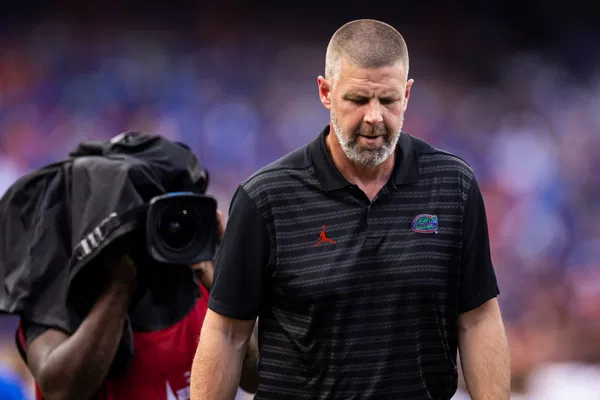The introduction of Name, Image, and Likeness (NIL) deals has significantly altered the college football recruitment landscape, shifting focus from traditional relationships and player-coach dynamics to financial incentives. This paradigm shift was one of the factors contributing to Florida edge rusher Jack “Psycho” Pyburn’s decision to transfer to LSU.

Pyburn’s Transfer Saga
Jacksonville native and lifelong Florida Gators fan Jack Pyburn made headlines when he entered the transfer portal under controversial circumstances. Preparing for his final year of eligibility, Pyburn reportedly presented a list of demands to the University of Florida, which were ultimately rejected. This led him to leave the Gators and join LSU. Initial reports suggested that his demands were centered on financial compensation, with Pyburn allegedly requesting $45,000 per month in NIL money to stay with Florida. However, additional details and possibly exaggerated claims have emerged regarding the nature of his requests.
View this post on Instagram
Pyburn was also accused of demanding a guaranteed starting position and assurances that he would play every third-down snap. Pyburn has denied these claims. According to an insider, the fanbase turned against him once these alleged demands became public, as they were viewed as unreasonable. Pyburn was already a starter at Florida, but being a starter this year did not guarantee the same role next season, according to analysts.
Context and Insight
An insider with knowledge of Florida football shared insights into the situation. They suggested that financial figures tied to such claims are often inaccurate, but they acknowledged the validity of some demands. For instance, Pyburn’s request to avoid being dropped into pass coverage on third downs aligns with his role as a pass rusher. Pass rushers are generally evaluated and compensated for their ability to pressure quarterbacks, not their coverage skills. However, Florida’s defensive scheme often requires edge rushers to drop into coverage, a strategy that does not appear to have been tailored specifically to Pyburn.
Notably, Pyburn’s former teammate, TJ Searcy, has also entered the transfer portal, reportedly due to similar frustrations. Analysts have pointed out that the Gators’ defensive schemes often clash with player preferences, which could explain the exodus of talent from Florida’s program. Pyburn’s transfer highlights the tension between individual player goals and team strategies.
Comparisons to Broader Trends in Sports
The notion of “player power” is not unique to college football and is a frequent topic in other sports, particularly the NBA. The ability of athletes to control their careers by leveraging their marketability is often debated, with examples like LeBron James’ move to Miami cited as pivotal moments. In college football, NIL deals and the transfer portal have granted players similar mobility, making cases like Pyburn’s more common.
Pyburn’s social media activity adds another layer of complexity to the story. A cryptic Instagram post with lyrics hinting at betrayal suggested deeper issues behind his decision to leave Florida. The departure of TJ Searcy around the same time further indicates systemic challenges within the program. This might prompt Gators’ head coach Billy Napier to reevaluate his team’s approach and communication with players.
Implications for College Football
The Jack Pyburn saga is emblematic of a larger shift in college football. NIL deals and the transfer portal have empowered players to make career moves based on their preferences and financial goals. Some argue that this has given players too much power, while others believe it is a necessary evolution in the sport.
The outcome of Pyburn’s transfer to LSU could serve as a precedent for other players navigating NIL opportunities and transfer decisions. Whether he thrives or struggles in his new environment will likely influence how future players exercise their newfound autonomy in college football.